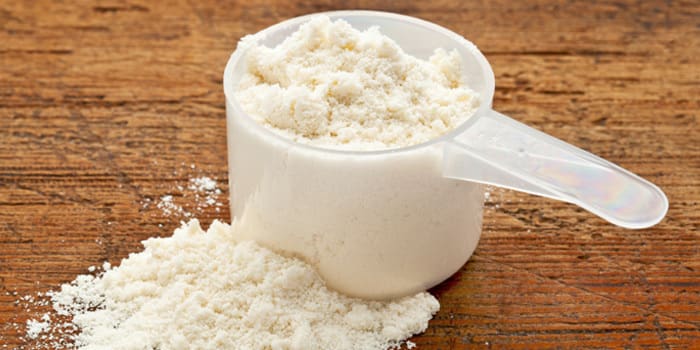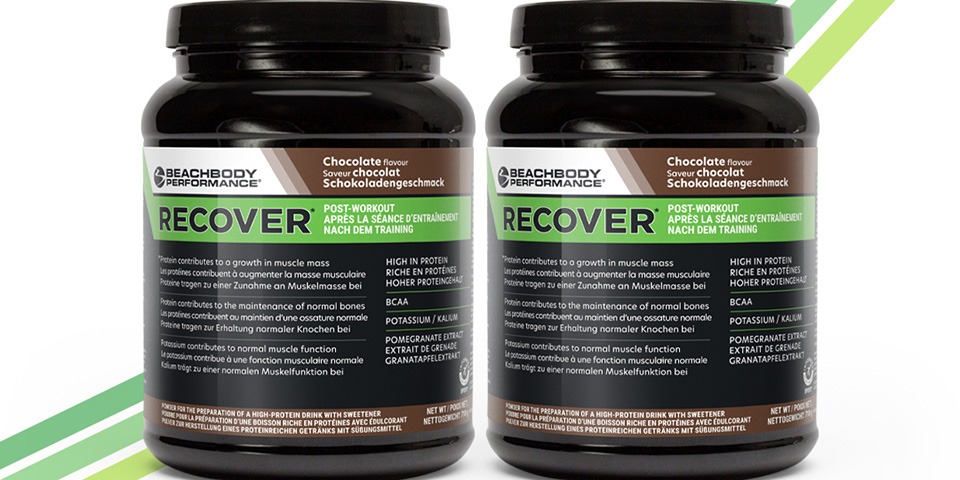How Much Protein Do You Need?

Protein is one of the three primary macronutrients, essential to a myriad of processes that keep your body functioning like a body. But how much should you consume per day? Per meal? Per second?!?
The general scientific consensus is that you can utilize about 30 grams of protein (for amino acid functions — more on those later) in one sitting. That works out to about 4 ounces of meat. Of course, if you’re larger than average, the amount of protein you can metabolize increases.
Over a day, man or woman, you need about 0.8 grams of protein per kilogram of body weight. (Plenty of Internet “experts” confuse kilograms with pounds on this one. Pesky metric system. To determine your weight in kilograms, divide your weight in pounds by 2.2.) If you’re a heavy exerciser, that number climbs, peaking at 2 grams of protein per kilogram of body weight, according to the International Society of Sports Nutrition.
Odds are, if you exercise regularly, you’re somewhere in the middle, approximately around 1.5 grams. If you’re injured, sick, or really broken down, eat more protein. You need raw materials to repair yourself!
| Weight |
Protein/Day Baseline |
Protein/Day Regular Exercise |
Protein/Day Heavy Exercise |
| 100 lbs. | 36 g | 68 g | 90 g |
| 110 lbs. | 40 g | 75 g | 100 g |
| 120 lbs. | 44 g | 82 g | 109 g |
| 130 lbs. | 47 g | 89 g | 118 g |
| 140 lbs. | 51 g | 96 g | 127 g |
| 150 lbs. | 55 g | 102 g | 136 g |
| 160 lbs. | 58 g | 109 g | 146 g |
| 170 lbs. | 62 g | 116 g | 155 g |
| 180 lbs. | 66 g | 123 g | 164 g |
| 190 lbs. | 69 g | 130 g | 173 g |
| 200 lbs. | 73 g | 136 g | 182 g |
| 210 lbs. | 76 g | 143 g | 191 g |
| 220 lbs. | 80 g | 150 g | 200 g |
| 230 lbs. | 84 g | 157 g | 209 g |
| 240 lbs. | 87 g | 164 g | 218 g |
| 250 lbs. | 91 g | 171 g | 227 g |
What Is Protein?

Protein is made up of amino acids, the body’s primary building blocks. Muscles, bones, skin, internal organs, and enzymes — and much more — are all made of protein. Protein also regulates fluids and pH.
For your body to function optimally, it requires 20 different amino acids, 11 of which are made by your body. The other nine — known as “essential amino acids” — come from your diet. Any protein that contains all nine essential amino acids in adequate levels is called a “complete protein.”
Complete proteins are important because amino acids work as a team. If you’re low on one essential amino acid, the rest of them can’t do their jobs at an optimal level.
Can Added Protein Help With Weight Loss?
For those looking to lose weight, emphasizing protein can help make them feel full for longer than carbohydrates and fat, presumably resulting in fewer overall calories consumed. That’s especially true compared to a diet filled with low-quality, high-glycemic carbs like sugary snacks and drinks, which burn quickly, making you hungry sooner.
Even protein shakes can help you lose weight. Since protein helps provide satiety, it can help you feel full for longer, instead of turning to a snack just a few minutes after you eat. And Shakeology contains 16 to 17 grams of protein to help your stomach stay satisfied.
Of course, when you eat a high-protein diet, you’re eating a smaller proportion of carbs and fat, both of which tend to be the primary transports for vitamins, minerals, phytonutrients, and a host of other goodies. So a brief high-protein phase for weight loss is OK, but don’t go too far beyond a month or so.
Finally, if you have kidney issues, a very high-protein diet can be harmful, as the kidneys play a huge role in processing protein.
Can Protein Help With Muscle Gain?
As noted earlier, protein is what muscle is made of, so it’s essential if you want to build more of it. If you’re strength training, your protein consumption should clock in around the middle to upper end of the stated range to promote muscle repair, recovery, and growth.
When it comes to sports nutrition, the source of protein matters as much how much of it you eat. With that in mind, protein supplements can be a great resource. When considering sports performance, dairy cows don’t generally come to mind (unless you’re a cowboy or you’re just weird), but whey and casein — the two proteins derived from milk — are terrific choices.
Whey protein — like the kind you’ll find in Beachbody Performance Recover — is the fastest absorbing, making it great for quickly delivering protein to muscles after a workout to help them begin the recovery process. Before bed, casein is best. Because your muscles absorb casein slowly, it will feed them all night long. While the musclehead theory that the body catabolizes muscle during sleep unless you eat protein before bed may be a bit extreme, current research shows that a little sleepy-time casein can aid recovery.
You might also want to consider branched-chain amino acids (BCAAs) if you’re a high-intensity exerciser. BCAAs, like those in Beachbody Performance Recover, appear to be go-to amino acids to help fuel working muscles and support muscle protein synthesis and muscle repair. Also, a number of studies show that they inhibit muscle breakdown during intense exercise.
Can You Eat Too Much Protein?
Yep. Unlike carbs and fat, the body has no way of storing protein. Excess amino acids are not turned into bonus muscle, nor are they “peed out,” so wilding out on protein isn’t the way to go even if you’re trying to get huge, bro.
If you eat more protein than you need, it gets converted into either glucose or fat. In order to convert protein to glucose, it goes through a process called deamination. This produces ammonia, which is toxic to our cells, so it’s converted into a substance called urea and excreted through urine. (We don’t pee out excess protein — just its stinky byproduct.)
If you’re trying to bulk up, realize that those tubs of targeted amino acids will only benefit you if they’re part of a balanced diet. If you’re trying to lose weight, stop avoiding fruits and veggies because they’re “carbs” and eat less junk food (i.e., refined carbs). As is the case with most things, a good diet is all about balance.
How Do You Get Enough Protein in Your Diet?

The easiest answer — and some of you aren’t going to like it — is to eat animal products. Just like us, animals are made of protein, including the nine essentials. (We’re made of them too, technically, but we need to continually replenish them via diet.) Protein powder supplements, like Beachbody Performance Recover, provide the quick-releasing protein you need after a workout and can help hit your daily protein goals.
Luckily for those of us who aren’t into the whole “animal hostility” thing, there are plenty of complete protein sources out there that are plant-based. Soy contains all nine essential amino acids. You can also eat a combination of legumes (beans and peas) and grains to get all the essential amino acids. The classic example of this is rice and beans. (For the record, you don’t need to eat them together. Just get them both at some point during the day.)
For a convenient source of vegan protein, Plant-Based Recover contains pea protein and a blend of BCAAs to help you recover after a workout. And for a high-protein snack that you can have throughout the day, mix up a glass of Shakeology with some water, milk, or with your favorite shake or smoothie.
Of course, there’s also the middle road. Eggs and dairy are both good complete protein sources.
What’s the Best Source of Protein?
There are tons of protein sources that are readily available. From a dietary perspective, any complete protein will get the job done. It’s what comes with the protein that you need to consider.
Eggs are a perfect example. Egg whites are about the purest source of protein you’ll find in nature. No fat and minimal carbs. (Very few vitamins or minerals though, if you’re keeping score.) Sometimes, that’s pretty useful when you’re trying to target exact macronutrient amounts.
The yolk, however, changes the game considerably. There’s a little protein in yolks, but they’re mostly fat — and they’re loaded with micronutrients. So if you’re looking for the maximum health benefit, your best bet is to eat the whole egg. But when you do that, it’s important to note that you’re getting a protein and a fat source.
In fact, most animal products will have a balance of fat and protein — and some of that fat is super-valuable. Fish — particularly salmon, anchovies, and sardines — are loaded with good, essential omega-3 fatty acids.
Plant-based protein tends to go the opposite direction. They’re loaded with carbs. That’s why a high-protein, vegan diet is almost impossible unless you want to fill up on isolated protein powder the whole day.

